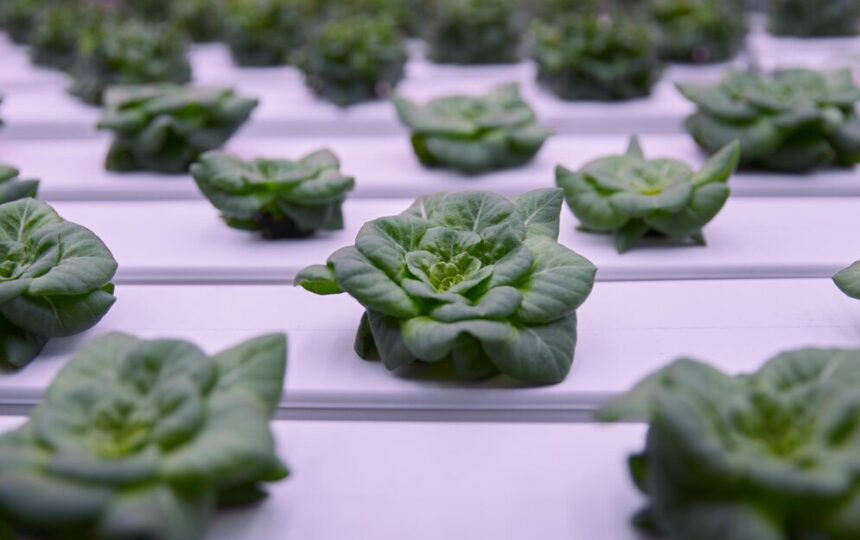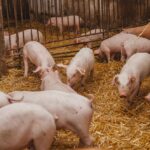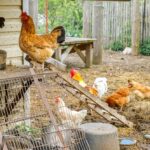As urbanization continues to reshape South Africa, innovative farming techniques are emerging to address the challenges of food security, space limitations, and water scarcity. One such innovation gaining traction is hydroponic cabbage farming, an efficient and sustainable method of growing crops without soil, using nutrient-rich water solutions instead.
Hydroponic farming offers a potential solution for urban dwellers who want to engage in agriculture, even in areas with limited space and resources. It has proven to be a game-changer for urban agriculture, particularly in cities like Johannesburg, Cape Town, and Durban, where available land for traditional farming is scarce.
What is Hydroponic Farming?
Hydroponics is a method of growing plants in a water-based, nutrient-rich solution instead of soil. The plants’ roots are submerged in the solution, which delivers all the essential nutrients directly to them. This process eliminates the need for soil and uses less water compared to traditional farming methods. Hydroponic systems can be set up vertically, which makes them ideal for small spaces like rooftops, balconies, and urban greenhouses.
For cabbage farming, this method allows for year-round production, with a higher yield per square meter. Hydroponic cabbage farming typically uses systems such as Nutrient Film Technique (NFT) or Deep Water Culture (DWC), both of which are highly efficient in nutrient delivery and water conservation.
Benefits of Hydroponic Cabbage Farming in Urban South Africa
- Water Conservation: South Africa is a water-scarce country, and hydroponics significantly reduces water usage. In traditional farming, around 90% of the water is lost to evaporation, runoff, and soil absorption. With hydroponics, up to 90% of water is recycled, making it an environmentally sustainable solution.
- Space Efficiency: In urban areas where space is at a premium, hydroponic farming offers a way to maximize vertical and horizontal space. Rooftop farms or container gardens can be used to grow large quantities of cabbage in confined spaces, ideal for city dwellers looking to produce their own food.
- Reduced Pest and Disease Issues: Since hydroponic systems are typically grown in controlled environments, they are less susceptible to pests and soil-borne diseases, reducing the need for harmful pesticides and ensuring cleaner, healthier produce.
- Faster Growth and Higher Yields: Cabbages grown hydroponically tend to grow faster and produce higher yields than those grown in soil. The controlled nutrient delivery system optimizes plant growth, resulting in quicker harvests.
- Urban Food Security: Hydroponic cabbage farming can contribute significantly to food security in urban areas. It allows for local food production, reducing dependency on long supply chains and providing fresh, nutritious produce directly to the community.
Challenges of Hydroponic Cabbage Farming
While the benefits are numerous, hydroponic farming is not without its challenges. The initial setup costs for hydroponic systems can be high, particularly for those who are new to the technology. Proper training and expertise are essential to ensure the system runs smoothly, and any issues such as nutrient imbalances or system failures can quickly lead to crop loss.
Additionally, access to affordable electricity is crucial, as many hydroponic systems rely on pumps and lighting, which can be impacted by load shedding in South Africa. Entrepreneurs and urban farmers need to find ways to mitigate these issues, such as investing in solar-powered systems or establishing backup power solutions.
The Future of Hydroponic Cabbage Farming in South Africa
As the demand for sustainable and locally produced food grows, hydroponic cabbage farming presents an exciting opportunity for South African cities. With increasing interest from both small-scale urban farmers and larger commercial entities, the industry is set to expand. The government’s support for urban agriculture, along with private sector investments, can provide the necessary resources to scale up this method.
Moreover, as South Africans become more aware of the environmental and economic benefits of hydroponic farming, it is expected that more urban dwellers will adopt these systems in their homes, communities, and businesses.
Hydroponic cabbage farming is an innovative and viable solution to some of the pressing challenges facing urban South Africa, including food security, water scarcity, and limited space for traditional farming. By embracing this method, urban farmers can produce high-quality cabbage efficiently, contributing to the country’s growing demand for sustainable agriculture. With the right support, training, and investment, hydroponics could transform urban food systems and pave the way for a more sustainable and self-sufficient future in South Africa’s cities.
Join 'Farmers Mag' WhatsApp Channel
Get the latest Farming news and tips delivered straight to your WhatsApp
CLICK HERE TO JOIN






